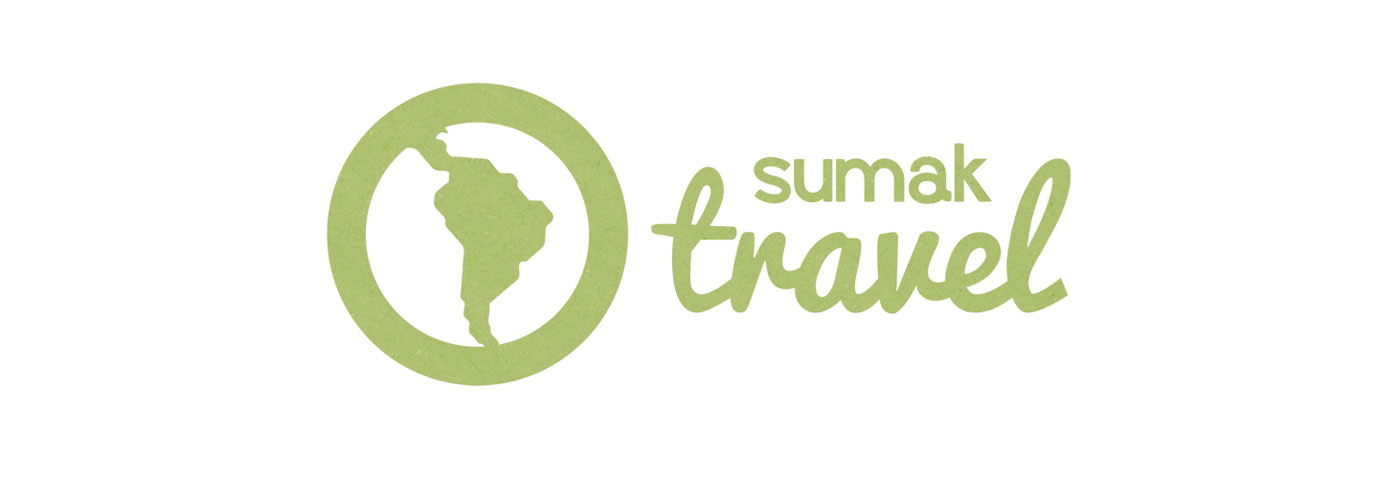1. What inspired you to create your business?
Sumak Sustainable Travel is based on one optimistic assumption: that tourism can be a force for good. There are hundreds of thousands of local communities, all over the world, using tourism as a tool for sustainable development. It is a source of complementary income that they use to improve their standards of living and to preserve the environment and their culture. For travellers it is a great opportunity too, as there is a high level of authenticity and the quality that these communities are delivering is outstanding. I travelled all over Latin America to visit many of these great initiatives and the work these communities are doing is excellent. They are our inspiration, and our social business model is the perfect way to market and promote their services and products, by making sure everything is fair trade and transparent, and ensuring that most of the money goes to support the local economy. It’s the opposite of mass tourism.
2. How does being responsible help your business attract potential customers?
It doesn’t. The market is saturated and highly competitive. We attract potential customers by promising and delivering high quality: authenticity, great customer service, and outstanding travel experiences. Being a responsible business helps our travellers to take the decision to book with us, and then to recommend us to their friends and family when they come back form holiday.
3. How do you engage guests in your responsible tourism activities?
Our tours are packed with responsible tourism activities, as these are part of our core business, and not simply add-ons. Our travellers stay with indigenous communities in the Amazon rainforest, learning more about their culture and taking part in their rituals. They visit organic farms where they take part in agricultural workshops, organic wine or coffee tastings, and environmental conservation projects. They go artisan fishing, bird watching or whale watching with promoters of wildlife conservation and sustainable development. They stay in stunning eco-lodges that are owned and run by local communities, or do homestays in remote locations that support the local economy. They visit social projects in the shantytowns of big cities like Lima, Buenos Aires and Santiago. And so on. Our responsible tourism approach and activities have been featured in The Guardian several times, for example Colombia’s Lost City: lore of the jungle & Homestays in Argentina: how ethical holidays are protecting a way of life
4. What is the responsible tourism initiative of which you are most proud?
This year we decided to take responsible tourism to the next level. Since we started, we have always taken fair trade principles very seriously, and made them an essential aspect of our business. But now we are giving fair trade a new dimension within the tourism industry, with the creation of Fair Trade Adventures. We teamed up with Cafedirect Producers’ Foundation to design a series of tours that will give travellers a rare opportunity to meet the farmers and artisans behind popular fair trade products such as coffee, chocolate and handicrafts, whilst also experiencing some of the countries’ most iconic sights and natural wonders. We are starting with four small group tours to unique destinations in Peru, Costa Rica and Colombia. The brochure includes all the itineraries, prices and dates.
5. What positive impacts does your tourism business have on the community/environment where you are based?
We work directly with more than 25 community-based operators, in 15 Latin American countries. They represent over 2,000 local communities that, in turn, have between 6 and 200 families each. Increasing their visibility and the volume of travellers they host is having positive impacts on several levels. From an economic point of view it means more income, which they can reinvest and redistribute to make sure everybody benefits from tourism. It also means more environmental preservation, as usually wildlife, rainforests, unspoiled beaches, biodiversity, etc, are the main attractions, so it’s in the community’s interest to protect the land and its resources. Culturally it’s a great boost for self-esteem, and socially, this type of tourism generally leads to an improvement in the standards of living: there are more resources to send children to school or secure access to public services. You can read our responsible tourism policy and our blog to learn more about the positive impacts of community-based tourism.
6. What has been the biggest challenge you have faced?
The main challenge is to be able to compete against the big tour operators – many of which, in my opinion, engage in green washing activities! Now companies like Intrepid Travel and G Adventures call themselves responsible businesses, and even social enterprises! I don’t think you can achieve net positive impact by operating within a mass tourism context, but it would be interesting to see how they do it on the ground.
7. What advice would you give to any entrepreneur starting a responsible tourism business?
Go niche. Find a speciality, something you are very good at, and start offering it with style. Responsible tourism needs to be part of your core business, but it cannot be your unique selling point.








